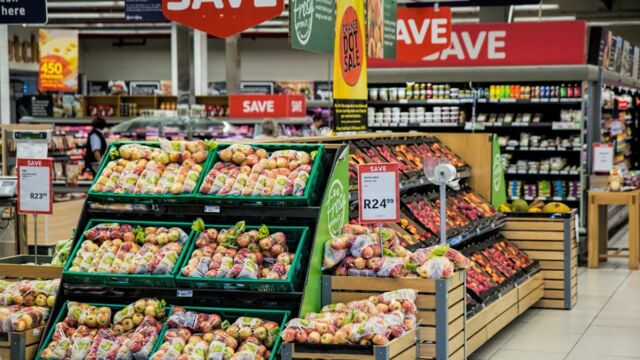The chief executive of the British Retail Consortium has warned that some food retailers will be forced to shut down due to the high rate of staff that are obliged to self-isolate after being ‘pinged’ by the NHS app.
Discover our latest podcast
No cause for alarm
Helen Dickinson urged individuals not to panic, assuring them that there is plenty of food in the country.
She said some parts of the country are worse hit than others but that fear is growing among business owners. Self-isolation rules are currently not planned to change until August 16.
Dickinson told BBC Breakfast:
Right now that feels a long time away given the rises that we’re seeing in case numbers.
There will be many smaller businesses where if they only have one or two staff and they need to self-isolate, then that’s them needing to close their doors completely.
What is the most important thing is that people don’t panic because there’s no need to panic, because there’s plenty of food in the country.
UK business secretary Kwasi Kwarteng said in an interview this morning he was ‘very concerned’ about the shortages on supermarket shelves and that a list of critical workers eligible for less strict isolation rules would be created very soon.
It comes after Number 10 previously said that there would not be a list for individual sectors.
Kwarteng told Sky News:
We’re going to announce a list of exempt workers. The list of exemptions will be quite narrow because, obviously, you have to draw the line somewhere.
But he would not reveal any details of which workers might feature on the list or when it would come, insisting only that it would be ‘very soon.’
Keep working
In the UK, where food supply chains are facing staff shortages due to COVID exposure, a food distribution company has told staff to go against government advice.
Bidfood is instructing workers who are 'pinged’ by the NHS app to follow a testing regime and keep working.
The company’s chief executive, Andrew Selley, told BBC Radio 4’s Today programme:
We know that they’re critical workers as part of the food supply chain, so if people are obviously positive or contacted by Test and Trace then they will have to isolate.
If they are pinged we ask them to take a PCR test, if that’s positive then clearly they’ll isolate, but if it’s negative we ask them to come back to work and we have a process of doing lateral flow tests daily away from their workplace, and if that’s negative they can proceed with their work.















